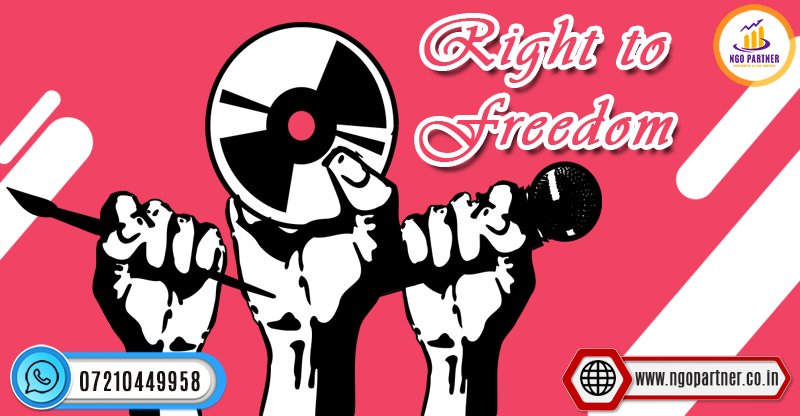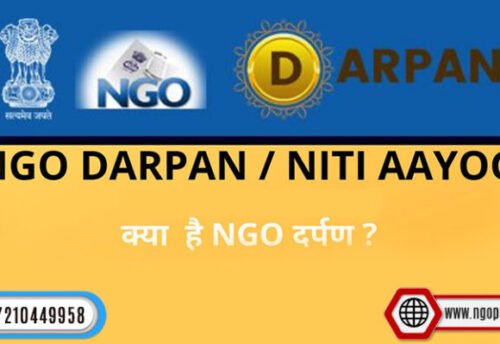
- June 15, 2023
- NGO Partner
- 2 Comments
- 824 Views
- 0 Likes
- Marketing Company Blogs
Right To Freedom: Liberties and Democratic Values
Right to Freedom
In a world where individual liberties are cherished and democratic values are upheld, the Right to Freedom stands as a beacon of hope and empowerment. It is a fundamental right that not only protects our personal liberties but also plays a pivotal role in fostering vibrant and inclusive societies. From the freedom of speech and expression to the right to assembly, religion, and movement, the Right to Freedom encompasses a range of essential human rights that are essential for human flourishing.

At its core, freedom is the essence of our existence. It embodies the inherent dignity and autonomy of every individual, granting us the power to voice our opinions, pursue our passions, and shape our own destinies. It is a universal aspiration that transcends borders, cultures, and generations, forming the bedrock of human rights.
This blog delves into the multifaceted concept of freedom and explores the significance of the Right to Freedom in protecting individual liberties and fostering democratic societies. We will examine the historical context of this fundamental right, the key provisions and scope of freedom, and the challenges and contemporary issues surrounding its implementation. Join us as we embark on a journey to understand, appreciate, and defend one of the most cherished rights of humanity – the Right to Freedom.
Understanding the Right to Freedom
The Right to Freedom finds its roots in various international human rights instruments and national constitutions. These include the Universal Declaration of Human Rights, International Covenant on Civil and Political Rights, and the constitutions of democratic nations. It serves as a fundamental pillar in ensuring the protection and promotion of individual liberties.
To comprehend the significance of the Right to Freedom, it is essential to explore its historical context. Throughout history, societies have witnessed struggles for liberation and the recognition of inherent rights. The inclusion of this fundamental right in legal frameworks reflects the aspiration to establish just and democratic societies where individuals can exercise their rights and live without oppression.
Key Provisions and Scope
The Right to Freedom encompasses a range of essential provisions, such as freedom of speech, expression, assembly, religion, and movement. Freedom of speech and expression grants individuals the right to voice their opinions, share information, and engage in open discussions without fear of censorship or retribution. Freedom of assembly ensures the right to gather peacefully, protest, and participate in public affairs. Freedom of religion allows individuals to practice their faith or choose not to adhere to any religion. Freedom of movement guarantees the right to travel and reside within a country.
The scope of the Right to Freedom is broad, extending to all individuals within a society. It recognizes the inherent dignity and autonomy of individuals and provides them with the freedom to exercise their rights without unwarranted interference. This right ensures that individuals have the liberty to express themselves, engage in public discourse, peacefully assemble, practice their beliefs, and move freely within legal boundaries.
Protection of Civil Liberties
Freedom of speech and expression plays a crucial role in promoting open dialogue, facilitating the exchange of ideas, and fostering a pluralistic society. It allows individuals to voice their opinions, challenge authority, and contribute to public debates. This freedom acts as a safeguard against tyranny, encourages critical thinking, and helps shape informed societies.
Freedom of assembly and peaceful protest empower individuals to collectively raise their concerns, advocate for social justice, and effect positive change. It provides a platform for marginalized voices, strengthens democracy, and holds governments accountable. By engaging in peaceful demonstrations, individuals can address societal issues, advance human rights, and contribute to the betterment of their communities.
By understanding the Right to Freedom and its key provisions, we recognize the importance of protecting civil liberties and fostering inclusive societies. The exercise of these freedoms empowers individuals, strengthens democracy, and promotes social progress. In the pursuit of a just and free society, let us cherish and defend the Right to Freedom for the betterment of all.
Ensuring Political Rights
In democratic societies, freedom of association and political participation hold immense significance. Freedom of association allows individuals to form and join political parties, organizations, and interest groups, enabling them to collectively express their views and advance their interests. Political participation empowers citizens to engage in the decision-making processes that shape their society, ensuring their voices are heard and their concerns addressed.
The right to vote and be elected stands as a cornerstone of political freedom and active citizenship. The ability to cast a vote enables individuals to choose their representatives, shape policies, and hold governments accountable. Running for public office provides an opportunity for citizens to contribute directly to the governance of their communities, fostering democratic principles and ensuring diverse perspectives are represented.
Limitations and Balancing of Rights
The exercise of the Right to Freedom is subject to certain limitations and restrictions to protect public order, national security, and the rights of others. These restrictions aim to strike a balance between individual freedoms and the collective interests of society. While it is crucial to safeguard individual liberties, it is equally important to ensure that the exercise of these freedoms does not infringe upon the rights and well-being of others or threaten the stability of society.
The delicate balance between individual rights and collective interests often requires careful consideration by lawmakers and the judiciary. Courts play a vital role in interpreting the limits of freedom, weighing competing rights and interests, and resolving conflicts that may arise. The evolving nature of society and the complexities of modern life pose ongoing challenges in determining where the boundaries of freedom lie.
Challenges and Contemporary Issues
Upholding and protecting the Right to Freedom faces numerous challenges in today’s world. Censorship, both offline and online, poses a threat to free expression and the exchange of ideas. Surveillance measures, aimed at ensuring security, may encroach upon individuals’ privacy and freedom. Protecting digital freedoms has become increasingly important as the internet plays a central role in communication, information sharing, and civic engagement.
Contemporary issues such as hate speech and online harassment highlight the need to strike a balance between freedom of speech and the responsibility to prevent harm and maintain social harmony. Navigating these challenges requires thoughtful consideration, robust legal frameworks, and proactive measures to address emerging threats while upholding the core principles of freedom.
Promoting Freedom and Active Citizenship
Promoting a culture of freedom and active citizenship begins with education and awareness. It is crucial to educate individuals about their rights and responsibilities, fostering a sense of civic duty and encouraging them to exercise their freedoms responsibly.
Supporting organizations defending freedom, such as human rights groups, civil society organizations, and advocacy groups, can contribute to the protection of individual liberties. Active participation in public affairs, including engaging with policymakers, participating in public consultations, and joining grassroots movements, empowers individuals to shape the social and political landscape in line with their values and aspirations.
By embracing our rights and responsibilities, promoting dialogue, and actively engaging in the democratic process, we can ensure the continued vitality of freedom in our societies. Let us recognize the importance of individual liberties, confront contemporary challenges, and work collectively to build inclusive and democratic communities that uphold and protect the Right to Freedom for all.
In conclusion, the Right to Freedom stands as a powerful guardian of individual liberties and a pillar of democratic values. Throughout this blog post, we have explored its multifaceted dimensions and highlighted its crucial role in society. From freedom of speech and assembly to political participation and the delicate balance of rights, we have seen how the Right to Freedom shapes our lives and safeguards our democratic principles.
As readers, let us cherish and exercise our freedoms responsibly. Let us recognize the power of our voices, engage in meaningful dialogue, and contribute to the protection of our rights. By advocating for a world where freedom thrives, we can create inclusive societies that honor the dignity and autonomy of every individual. Together, let us work towards a future where the flame of freedom burns brightly and guides our collective journey towards justice and equality.




I really like reading through a post that can make men and women think. Also, thank you for allowing me to comment!
This is my first time pay a quick visit at here and i am really happy to read everthing at one place